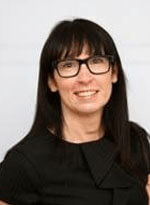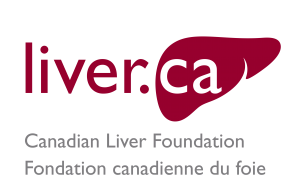An Open Letter from our President to the Canadian Liver Foundation Community

An Open Letter from our President
to the Canadian Liver Foundation Community
I joined the Canadian Liver Foundation as CEO in January.
I knew that I wanted to start this role by listening. So, I spent my time on phone calls, on airplanes, and in meetings with partners, community members, patients, employees, and volunteers. I was starting to get a sense of some major organizational shifts that I felt needed to take place, and then COVID-19 happened.
We had just launched a campaign about liver disease prevalence, and I felt that it needed to be put on pause as we all adjusted to our new reality. Anxiety was in the air, and we didn’t want to be adding any more to it at that time.
But not just campaigns — many things needed to be put on pause, evaluated, and reimagined as well.
We needed to re-forecast our budgets and reshape our teams. We’ve started to do that internally. We’ve also been shifting our programs to our new reality — pivoting the STROLL to a national and virtual event, redesigning galas so they can take place online, and learning how to work without seeing each other in the office. In the meantime, we have continued to launch several educational initiatives with much success! I am so proud of the team and their dedication, vigour, and perseverance during this especially difficult time….all of our success is because of each one of them.
But there is one very glaring area that I want to name and name it loudly. It is an area where we as an organization need to be better.
Moving forward, we will be more committed to serving and representing the diverse experiences and stories of liver disease, alongside the identities of people who are affected.
This means young people. Old people. People of every race and ethnicity. Indigenous peoples, settlers, newcomers and immigrants. People who use drugs and people who don’t. People who drink and people who don’t. People who are recently diagnosed and people who have been living with liver disease for years. Everybody.
We are not claiming to be an expert everywhere, nor do we aim to become a one-stop-shop for every single person who experiences liver disease. Where it doesn’t make sense for us to occupy space, we will work to amplify the programs, services and initiatives of our partners.
In order to be a leader in the liver health community, we need to know where to lead, where to follow, and where to listen. At minimum, I want to make sure that everybody who wants to can see themselves in this organization and feel comfortable and safe accessing the programs and support that we provide and promote.
The social determinants of health tell us that often, one can’t just decide to be healthier. If you are living with any form of inequality and oppression — because of your gender, your class, your race, your citizenship status, your sexual orientation, your employment status, whether or not you’re living with a disability or a mental illness, or if you experience any other forms of discrimination or stigma — it’s almost always harder for you to access disease treatment, prevention, and support. Your health outcomes are directly impacted by these determinants. This means that it is important for our organization to also focus on addressing inequities so that we can prioritize the health of the entire community.
This will not be an overnight shift, but it is one the CLF is starting. We will be evaluating our communications, our programming, and our internal/external structures and procedures to make sure we do better. I know that this will be difficult work, especially as budgets are tight this year. But that is no excuse. I know that we may get it wrong from time to time, and likely will. I welcome feedback along the way, and I invite you to hold us accountable when you think we could be doing better.
In the coming weeks and months, we will be sharing publicly some of the initiatives we are working on and directions we are shifting, and our progress along the way. In the next few weeks, we will be launching some social media initiatives focused on the intersections of stigma, the social determinants of health, and liver disease and I invite you all to follow along and engage with the content.
If 2020 has taught me anything so far, it is that nothing done in isolation is as impactful as what we can accomplish when we are working together. I know that strengthening our partnerships with individuals and organizations across this space will significantly benefit the wellbeing of the CLF and the entire community we serve.
I am excited by what the future brings.

Jennifer Nebesky
President and CEO


